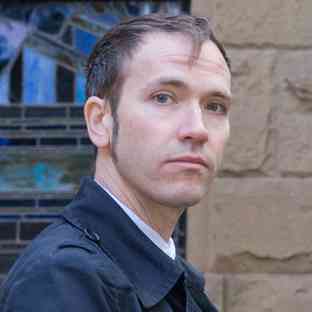What is the Cantorial "Golden Age"?

|
Hefker khazones (Wanton Cantorial Music), Or the "Key to the Jewish Soul”?Max Weinreich Fellowship Lecture in East European Arts, Music, and Theater & Concert
The Joseph Kremen Memorial Fellowship
Admission: Free |
Among aficionados and practitioners, the term cantorial "Golden Age" draws to mind a discrete body of work recorded by a well-known cadre of Eastern European cantors working in Europe and America in the 1900s-30s. This narrative of a Golden Age was shaped by cantors working in tandem with commercial distribution networks, advertisements in print media, and the efforts of intellectuals and impresarios who worked to establish a canon of stars and hit records through journalism, liner notes and show-business style promotion. Remarkably, recordings of cantors singing through-composed recitative settings on liturgical prayer texts achieved the status of mass media entertainment among Jewish listeners in the early 20th century.
However, the “Golden Age” of recorded cantorial music did not come about without pushback and controversy. Critics of recorded cantorial music saw new technology as a contamination of tradition that vulgarized sacred sound through commerce and the displacement of the liturgy from its temporal-spatial location in ritual contexts. While communal leaders accused cantorial recording stars of degrading sacred art, the cantorial recording stars positioned themselves as defenders of an older strand of Jewish folk prayer music that had been displaced by the Sulzerian Romantic choral music which had become normative in elite urban synagogues. Recorded cantorial music offers a populist, hyper-emotional memory work that interpolates Jewish listeners into a sense of self-recognition by performing a theatrical imagined ethnography of Jewish sacred folklore.
In this presentation, scholar and musician Jeremiah Lockwood will offer insights from the YIVO archival holdings that illuminate the impassioned debates among cantors and their critics in the early 20th century. He will be joined by Cantor Yoel Kohn, one of the leading young voices reviving Golden Age cantorial music, who will sing representative works from classic records.
About the Participants

Jeremiah Lockwood is the 2019 recipient of the Joseph Kremen Memorial Fellowship in East European Arts. He is currently completing a PhD dissertation on Chassidic cantorial revivalists at Stanford University. Jeremiah has played around the world from Montreal Jazz to the Festival au Desert in Timbuktu, Mali, as the leader of The Sway Machinery and as the guitarist in the Balkan Beat Box. His duo project, Book of J, with musician Jewlia Eisenberg, performs regularly in the Bay Area and throughout the United States. Jeremiah was a recipient of a Six Points Fellowship for Emerging Jewish Artists, an Artist-in-Residence for the Forward and a Brooklyn Philharmonic Orchestra Composer Fellow.

Yoel Kohn is a virtuoso singer and an expert on “Golden Age” cantorial music of the early 20th century. He has performed extensively in the New York area and internationally. He is the son of a renowned Satmar Chassidic prayer leader, and brings this cultural perspective to his pursuit of artistry while pursuing a path outside of his birth community.




